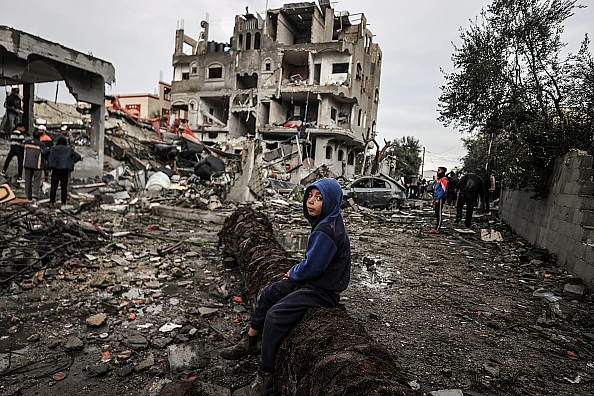The humanitarian situation in Gaza remains dire, with the UN Relief and Works Agency for Palestine (UNRWA) saying, “there's nowhere safe in Gaza, including the safe zones.” Hospitals, schools, and shelters, which should be protected under international law, have been repeatedly targeted in the ongoing conflict. Last month alone, at least 64 attacks on schools were reported, many of which also serve as critical sites for malnutrition treatment and other vital services.

The Office of the UN High Commissioner for Human Rights (OHCHR) on Friday reported that 8,119 of the more than 34,500 people killed in the first six months of Israel’s war in Gaza were verified, with most of them being women and children. It found that 44 per cent of the victims were children.

The Famine Review Committee (FRC) warned that famine is likely imminent in northern Gaza as Israeli forces continue their offensive. The committee called for immediate action to address the worsening crisis as starvation, malnutrition, and disease-related deaths are rapidly increasing in the region.

The OHCHR report stated that the situation in Gaza could be considered genocide if the attacks are “committed with intent to destroy, in whole or in part, a national, ethnical, racial or religious group”. It also highlighted that the continued attacks, which have killed civilians across all demographics, demonstrate a troubling indifference to the loss of life and the impact of the chosen methods of warfare.

Children aged five to nine make up the largest group of victims, followed by those aged 10-14, and then children up to four years old. The youngest recorded death is that of a one-year-old.

Aid officials in Gaza describe the situation as "apocalyptic," with over 80 per cent of the 2.3 million residents displaced and more than two-thirds of buildings destroyed. The main UN agency in Gaza reports that Israel has failed to meet a US deadline to increase aid, risking a reduction in American military assistance.

The amount of aid reaching Gaza has dropped to its lowest level since December, with only 8,805 tonnes of food crossing through Israeli checkpoints so far this month. A UN official reported that "almost nothing is getting in anymore," and basic goods are in short supply. In October, 57 trucks a day were allowed into Gaza, far below the 350 trucks the US had requested and the 600 trucks needed to meet basic needs. As of November, only 624 trucks have entered the territory.




















